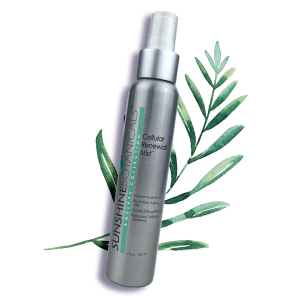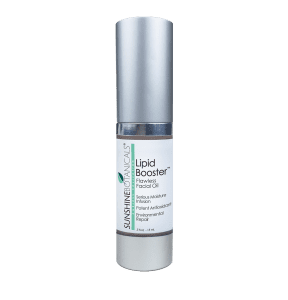
The topic of facial oil is of great interest (and even more confusion!) for many of my clients, so I decided to take this to the task and sort this all out. Simply put: high-quality facial oils are excellent for all skin types – but understanding which ones you need and how to use them is the real issue.
Whether you’re a face oil newbie or a long time enthusiast, read on for everything you need to know about face oils, from where they belong in your routine to the application techniques that ensure the product effectiveness.
What Exactly Are Facial Oils?
I like to think of skin oils as a “topcoat” in a skincare routine that works to seal in all the nourishing ingredients from a high-quality moisturizer and provide additional skin-nourishing benefits. All skin types — including combination and oily skins can benefit from botanical facial oils, especially if you live in a climate with little to no humidity.
Contrary to popular belief, facial oils are not mega-moisturizers – in fact, they aren’t classed as moisturizers at all. They do not absorb deep into the epidermis and bind water to the skin like humectants do. Instead, they are like a finishing treatment on the skin’s surface, provide extra nutrients, and prevent moisture loss. Skin oils are terrific to help protect against environmental assault and repair stressed and damaged skin. In this way, they are actually a very healthy protective layer for skin protection.
Does Face Oil Go Before or After Moisturizer?

effective than rubbing. It’s important to be mindful of how you apply a skin oil to the face — primarily based on your skin type. For starters, you don’t want to use too much. Oils spread very easily, so only a few drops are needed to do the trick. It is important to apply oils to damp skin, which makes any oil blend spread evenly and absorb better. I recommend using a hydrating mist before oil application. Cellular Renewal Mist from Sunshine Botanicals is my favorite for this!
What About Acne-Prone Skin? How Do Oils Benefit This Condition?
If I told you that using facial oils in your skincare could help treat acne, you would probably think I’m out of my mind, right? When you have always believed that oil will clog pores and cause breakouts, you avoid oils like the plague!
However, these days we know that not all oils are created equal, and while some might break us out, the right elixirs can transform even the most blemish-prone complexions. The right oils can dry the surface layer of skin, making this condition even more challenging to treat. Actually, help balance out oil production and help kick acne to the curb. Oils don’t cause acne – most people with acne have a very oily “sub-surface” and dehydrated “surface” skin, so often generated by the daily use of harsh, drying skin products like Retin A, benzoyl peroxide, or other harsh topical acne medications. For example, do you know how grapeseed oil benefits your skin? Grapeseed oil on acne skin includes antimicrobial properties that attack bacteria that lead to breakouts. Also, it softens the dry, tough surface skin and helps reduce redness and inflammation. Also, if your skin has unbalanced oil production — meaning it gets saturated with oil in some areas and stays overly dry in others, grapeseed oil’s linoleic acid content can mimic the sebum that your glands naturally produce. Research suggests that decreased levels of linoleic acid can be a direct cause of acne inflammation. In theory, boosting your linoleic acid levels might help reduce your risk of inflammation.
 What Ingredients Do You Need In Face Oils?
What Ingredients Do You Need In Face Oils?
Look for plant infused oils that have no added fragrance, scent, or perfumes and ingredients that are rich in antioxidants – such as St. Johns Wort and Vitamin E. You definitely want oils rich in Omega 3,6 and 9, and some of my favorites are Flax Seed Oil, Sunflower Seed, Evening Primrose Oil, Avacado, Meadowfoam, Almond, Grapeseed, Jojoba, Rosehip Seed, and Extra Virgin Olive Oil – just to name a few! Sunshine Botanicals “Lipid Booster” is a perfect example of a carefully crafted skin oil blend. This blend also provides anti-itch properties with their addition of jewelweed oil – not found in any other skin blend, making this perfect for so many dry, irritated skin conditions. An excellent oil to use in the treatment of eczema.
How Should You Apply Facial Oils?
When using facial oils full strength, they should be applied sparingly and undiluted to the skin. Just 3 to 5 drops of facial oil is more than enough for a complete facial application.
The trick is – you want to distribute the oil onto your fingers and then gently press into damp skin. I recommend using a hydrating mist before applying oils for easy blending and best absorption. You can start by pressing the oils into the cheeks and blend outward from there.
Another way to incorporate facial oils into your skincare routine is to mix a few drops of the omega-rich oils with your daily moisturizer in the palm of your hand before application to enrich your daily skin cream for amplified moisture and skin nutrition. Try facials oils and get glowing just in time for colder weather!!
Ingredient of The Week: Grapeseed Oil
Actions and Pharmacology:
Grapeseed Oil is known for its:
Benefits for Your Skin:

 What Ingredients Do You Need In Face Oils?
What Ingredients Do You Need In Face Oils?